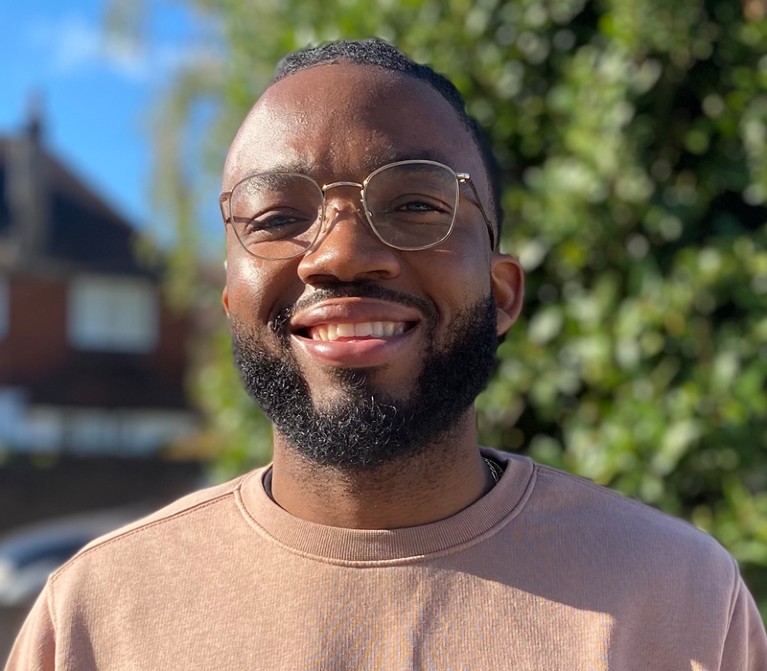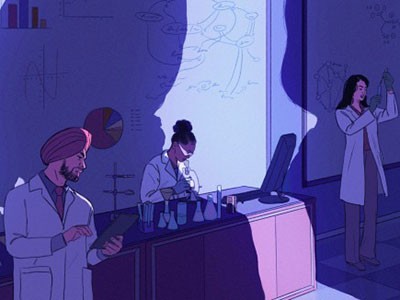[ad_1]

As a PhD student at University of Sussex, Daniel Akinbosede pushed administrators to address racism in science.Credit: Daniel Akinbosede
As a Black person in the United Kingdom, all of my schoolteachers were white. I must have learnt about James Watson and Francis Crick every year from age 15 to 24. I was taught to revere these men for discovering DNA’s structure, but I had to stumble onto the fact on my own that Watson has gone on record as saying that Black people are intellectually inferior.
Decolonizing science toolkit
Scientists are responsible for creating racial categories defined by skull size, pain tolerance, skin thickness and intelligence. Many medical students surveyed today hold views that Black people have thicker skin and are more prone to drug addiction than white people. It is common knowledge that people believe these ludicrous things about biology, race and human categorization, but there is a reluctance to address it because that would be to acknowledge that scientists can be racist. Yet racist views continue to be put forth. In 2017, the University College London (UCL) campus was the venue for a secret eugenics conference. [Editor’s note: A UCL investigation found that the conference to discuss eugenics and intelligence was held without the university’s knowledge.]
Universities are failing big time in addressing the need to decolonize science. So are funders. A 2019 report found that out of 20,000 PhD fellowships funded by UK Research and Innovation (UKRI) over the previous 3 years, only 1.2% went to Black students — and only 30 went to students of Black Caribbean descent. Institutions offer enough lip service to equality, but they do the bare minimum, in part to shield themselves from criticism, often from right-wing commentators. It takes more than diversifying a reading list, putting pictures of a few Black scientists on the wall or giving out honorary degrees to famous Black people.
Although I finished my PhD earlier this year, I am part of a country-wide project involving UKRI and the UK Office for Students, an independent regulatory body for higher education, to improve access and participation for Black, Asian and minority-ethnic students (BAME) in postgraduate research study. One of the biggest challenges is getting universities to understand the full scope of the problem. They suggest surface-level actions such as diversifying a reading list rather than the sort of deep introspective work required to make significant change. They could, for example, fund efforts to critically examine the history and contemporary relationship between race and science.
More locally, I was part of the Race Equity Advocates programme at the University of Sussex. This was founded in 2019 made up of students from the six schools at the university with the worst race gaps in graduation rates. These representatives talked about the lived experiences of BAME students to their heads of school to push for change. I made several proposals, including an undergraduate academic course to educate students about race and science; a scheme to provide free or subsidized summer accommodation in otherwise vacant campus housing to a Black graduate student researcher; and a postdoc-to-fellow pipeline programme to boost the number of Black junior faculty numbers. None of my proposals was instituted. In fact, there was only one lecture on race and science in the 2021 autumn-term academic-skills module before the university decided to discontinue funding for the initiative. In my view, the university found it too threatening to try to empower students only for them to challenge the institution.
This interview has been edited for length and clarity.
[ad_2]
Source link


